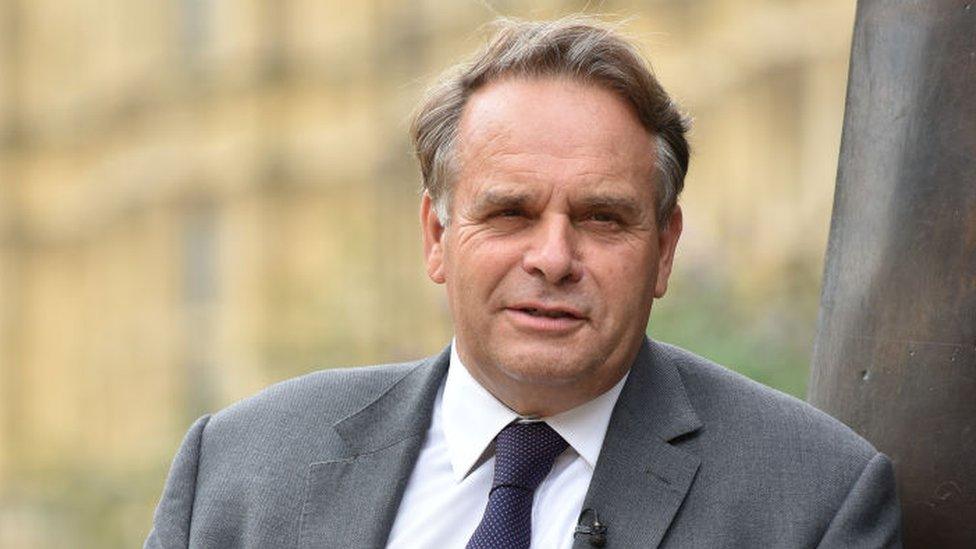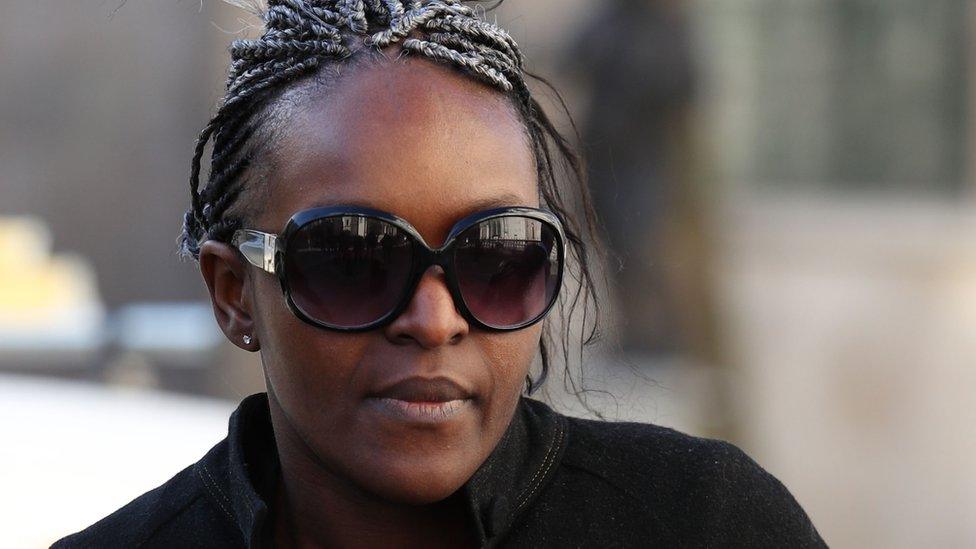What rules must MPs follow, and what happens if they break them?
- Published

Neil Parish was first elected as an MP in 2010
Neil Parish has resigned as a Conservative MP after admitting he watched pornography twice in Parliament.
Mr Parish's case, and the ongoing row over events attended by the prime minister during Covid lockdowns, have shone a spotlight on the rules which govern MPs' conduct.
What rules did Mr Parish break?
Under a Code of Conduct approved by the Commons,, external MPs have a duty to behave at all times in their public life "with probity and integrity".
Members are expected to observe the principles of "respect, professionalism, understanding others' perspectives, courtesy, and acceptance of responsibility".
The Code says they shouldn't do anything which would "cause significant damage to the reputation and integrity" of the House or MPs in general.
Mr Parish had already been suspended by the Conservative Party, but initially said he would remain an MP while his conduct was investigated, before accepting his position was no longer tenable.
His resignation triggers a by-election.
What other rules do MPs have to follow?
MPs must uphold the law, including the law against discrimination under the Equality Act, external
they should make decisions on the basis of what is in the public interest, and on merit, not for their own financial or other material gain, or that of their family or friends
they must not accept bribes
they should not put themselves under any financial or other obligation to outside individuals or organisations that influence their work as MPs
MPs have a duty to declare any relevant "private interests" in the Register of Members' Financial Interests, external
MPs are also personally responsible for ensuring that their use of any expenses, allowances and other public services are in line with the rules, and support their parliamentary duties.
They must treat their staff and all those visiting or working for, or with, Parliament "with dignity, courtesy and respect".
Who polices the Code of Conduct?
Complaints that MPs have breached the code are initially investigated by the independent Parliamentary Commissioner for Standards,, external Kathryn Stone.
The Commissioner's report is considered by the Committee on Standards,, external chaired by Labour MP Chris Bryant. The committee publishes its conclusions and recommendations to the whole House of Commons.
The House then decides whether to impose a sanction on the MP involved.
This can be an apology to the House, or in more serious cases, suspension or expulsion.
WATCH: Ros Atkins On… The PM and the Ministerial Code
A separate body called the Committee of Privileges, external can consider any matter concerning MPs referred to it by the Commons.
The panel - which has the same members as the Committee on Standards, and is also chaired by Mr Bryant - will consider whether Boris Johnson misled Parliament about parties in Downing Street during lockdowns.
Under the Code, ministers who knowingly mislead the House of Commons are expected to resign.
If the committee finds Mr Johnson did mislead Parliament, it can recommend that he apologises or is suspended or expelled.
MPs will then decide whether or not to approve the report and implement the recommended sanction.
What happens if an MP is suspended?
If an MP is suspended for at least 10 sitting days, under the 2015 Recall of MPs Act, constituents can trigger a by-election as long as at least 10% of eligible voters sign a recall petition.

Fiona Onasanya was expelled by the Labour Party after her conviction
Former Labour MP Fiona Onasanya was the first sitting MP to be removed by a recall petition in May 2019, after being jailed for lying to police over a speeding ticket.
Former Conservative MP Chris Davies was the second to lose his seat this way after pleading guilty to making false expenses claims. However, he wasn't suspended by the party and stood as the Conservative candidate in the by-election caused by his recall.
Former Conservative MP Imran Ahmad Khan recently resigned his Wakefield seat following his conviction for sexually assaulting a 15-year-old boy, before the recall petition process began.
Who deals with complaints about MPs' expenses?
These complaints are dealt with separately.
After the 2009 expenses scandal - which resulted in five then-MPs being jailed - the Independent Parliamentary Standards Authority (IPSA), external was set up to regulate politicians' expenses.

Former Conservative MP Sir Peter Viggers famously claimed expenses for an island to house the ducks in his pond
Complaints about expenses are dealt with by the IPSA compliance officer,, external who can:
refuse an expenses claim
pay only part of a claim
make an MP repay expenses, interest or costs
issue a penalty notice
MPs can appeal against, external a sanction.
What about accusations of bullying and sexual harassment?
In 2017 - prompted by the #MeToo movement - several victims revealed their experiences of bullying and sexual harassment while working in the Palace of Westminster.
Testimony from staff members raised questions both about the conduct of MPs, and whether complaints procedures were robust enough.
A new independent process for investigating complaints of bullying, harassment and sexual misconduct was set up - the Independent Complaints and Grievance Scheme (ICGS)., external
But concerns have been raised about the time it takes to investigate complaints, and whether the system still favours the powerful.
How does the ICGS work?
An independent investigator assesses the case. If the complaint is against an MP, the Commissioner for Standards reviews the investigator's report.
If rules are found to have been breached, the investigator can demand an apology to the House, or can refer the case to an independent expert panel,, external which does not include any MPs.
The panel decides on sanctions, which can include the suspension or expulsion of an MP, and hears appeals.
Any suspension or expulsion needs to be voted on by the whole House of Commons.